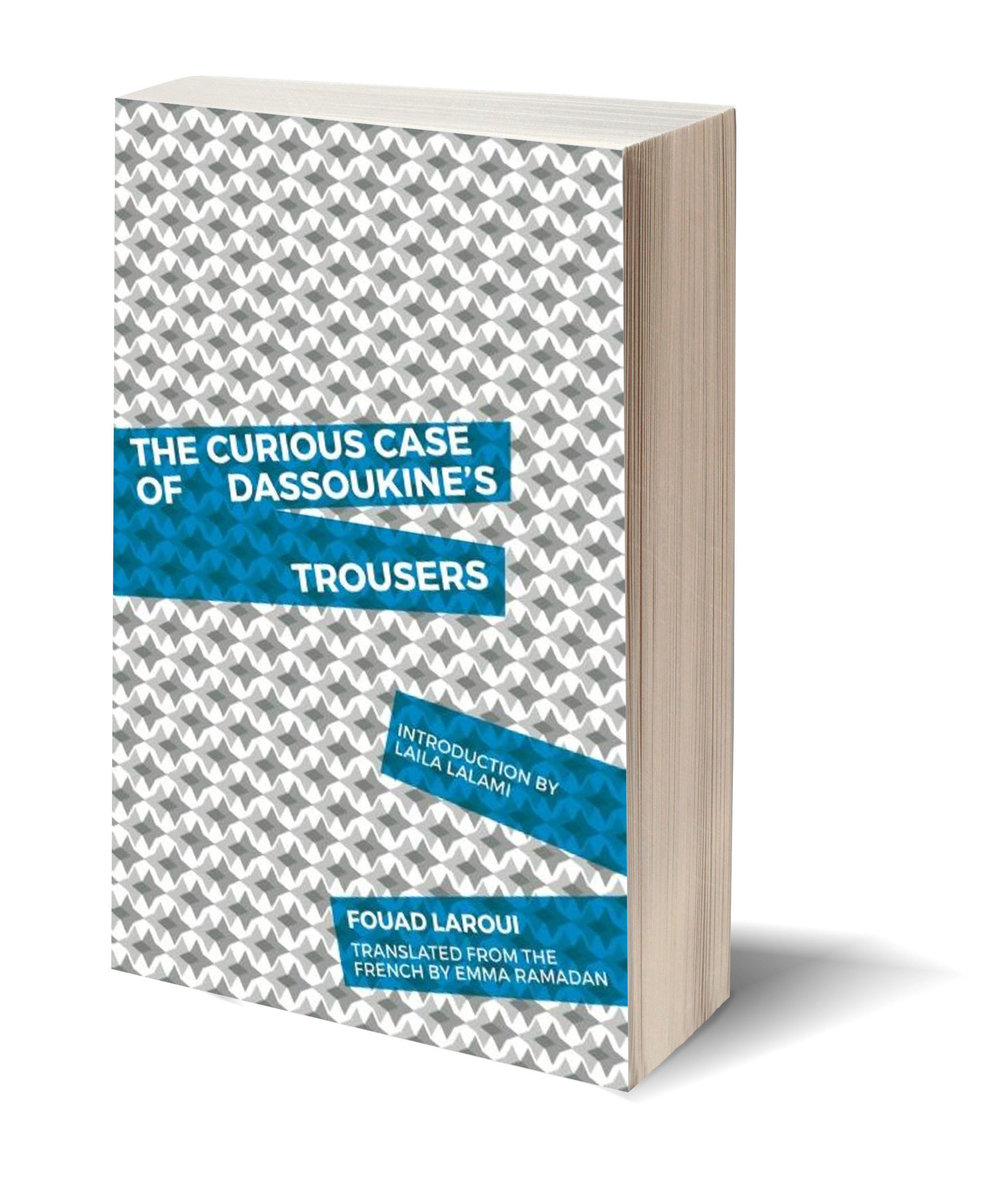The Curious Case of Dassoukine's TrousersBy Fouad Laroui
|
 |
|---|
Reviewed by Cody Lee
The Curious Case of Dassoukine's Trousers is the first English translation that we have from one of Morocco's most eminent contemporary writers, Fouad Laroui. In 2013, this mini tour-de-force won the Prix Goncourt de la nouvelle, France's most esteemed literary award for short stories.
Laroui's book is a brief, but brain-scratching, lemme-read-the-last-sentence-again collection of stories that focuses on the snags and merits of being a foreigner (and by that, I mean, a human). All of the tales seem to meld together, and build a world that's incredibly palpable, deeply rooted in compassion and pain, beauty, and an abundance of love; it's very much like Infinite Jest in that way (if, of course, David Foster Wallace had condensed his novel into 129 pages).
From the first story, the amount of detail that goes into the face-to-face connection between Dassoukine and the narrator is unbelievable. The audience can gather so much information about the narrator, even through his secondary role in the text. For example, the opening bit reads:
"Belgium really is the birthplace of Surrealism," sighs Dassoukine, staring into the distance.
I don't respond because this phrase seems like a prologue—and in the face of a prologue, what can you do but await what follows, resigned.
It's so easy to envision this relationship: one friend spews out facts that may or may not be factual, and the other sits there with a blank expression as if he or she has heard this same sort of claptrap time and time again. It's hilarious because it's so accurate, which seems to be the hallmark of Laroui's humor. Dassoukine's Trousers isn't covered in slapstick or bathroom jokes. Instead, there's a truth to the humorous moments that makes you wonder: Was that meant to be funny, and if it wasn't, then why can't I stop laughing? This comes into play again when Dassoukine hears some ruffling near his hotel window in Brussels. He stops the story for a moment, and asserts, "I'm brave—you know me," but rather than walking to the window and seeing what is happening, he calls the reception desk.
I kick myself over the intelligence that went into crafting these stories, whether it's their existential dubiety or Laroui's ability to write in such a casual manner, and then drop a word like "tintinnabulating." Laroui has unlocked some part of his mind that many writers have yet to open. For example, in "Dislocation," the narrator questions his life choices, including his geography, ideologies, and above all, his wife. "Ah yes, it's my wife (my wife? What does the possessive signify? What exactly do I possess?)" This self-interrogation is utterly brilliant for a number of reasons, but to state the obvious, it's reflective. The reader can infer that the narrator (and the author) doublethinks until his mind grows numb, the telltale sign of a bright human being. Laroui does this quite frequently throughout these stories; he'll have someone speak, and then dive deep into his or her brain, and fish out the rich, conflicting, and often stark notions that lay underneath the surface. Additionally, the quote above is feminist and egalitarian, and somewhat self-deprecating, because after reading it, I don't know if I possess anything at all.
Another moment of brilliance arises in "Fifteen Minutes as Philosophers," a story written in play-format about a philosophy teacher, and an ex-student that insists on being made "stupid again," just as it was before the doors of thought were kicked open. In the midst of the student's meltdown, Sylvie, the teacher, quotes: "Epicurus said it well. Something like: 'I cannot fear death for as long as I am here, it is not here. And when it will be here, I will no longer be here. Thus, I will never meet death. Thus, I do not need to be afraid of it . . .'"
Clearly, these aren't Laroui's words, per se, but the fact that he chooses to intertwine them within his own text deserves a round of applause, because it seems that mankind spends so much energy worrying about death, when in actuality, we're alive, and always will be (well, until we aren't).
Perhaps that's just crazy talk, but one cannot discuss The Curious Case of Dassoukine's Trousers without talking a little loopily. "Dislocation," for example, is one of the most frustratingly insane and lovely pieces I have ever read. Laroui starts with one sentence: "What would it be like, he asked himself, a world where everything was foreign?" Then, in every following paragraph, for the next ten pages, he adds a new sentence or concept to that original phrase. So, the subsequent paragraph reads: "What would it be like, he asked himself, walking slowly in the direction of his house, a world where everything was foreign?" As you may be able to tell, this could definitely drive someone mad, but luckily, I enjoy the feeling of lunacy.
I strongly encourage the maniacs and psychopaths, the foreigners and expats, citizens, doctors, lawyers, writers, and anyone with a mind to pick up a copy of The Curious Case of Dassoukine's Trousers, not just for the prose (although it's poignant and uplifting, somehow simultaneously) but also because you can tell that Laroui had fun writing these stories! This collection includes plenty of moments of vexation and harsh reality, but behind the curtain of heartache, monotony, suicide-bombers, and pseudo-superiority, lays a layer of optimism and unadulterated pleasure.
Laroui has gifted the world with a social critique like no other, spoken from a perspective that needs to be heard, and now that it's translated in English, there's no excuse to miss out, unless, of course, you can't find your trousers.
